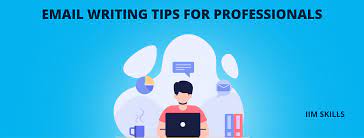Email communication is a fundamental aspect of today’s business world, and it plays a vital role in establishing and maintaining a business’s professional reputation. A well-written email can help you stand out, build relationships, and achieve your business objectives. On the other hand, poorly written or ineffective emails can create confusion, frustration, and damage a business’s reputation. Therefore, crafting an effective business email is essential for achieving success. In this guide, we’ll explore the top tips for writing professional and effective business emails.
1. Determine the Purpose of Your Email
Before you start writing your email, it’s essential to determine the purpose and goal. Without a clear objective, you may end up confounding your recipient and waste their time. Always keep in mind the ‘5 W’s Principle’ (Who, What, Where, When, Why) to ensure that your email objectives are clear, and your content is concise.
2. Understand Your Recipient
When crafting a business email, it’s essential to understand your recipient’s perspective. Remember that your recipient is busy and will likely scan your email first before deciding whether or not to read it carefully. Ensure that you use a clear and concise language to convey your message. Avoid using jargon, complex sentences or ambiguous words that may confuse the reader.
3. Use a Professional Tone and Grammar
Maintaining a professional tone is essential in business communication, and it demonstrates your respect and appreciation for your recipient. Additionally, using proper grammar and spelling denotes competence and professionalism, and it gives HR workers a reason to consider hiring you. Always proofread your emails before sending them to ensure that they are error-free.
4. Keep It Short and Simple
To grab the reader’s attention, keep your email short and to the point. Long emails tend to lose the reader’s interest, and they may skim through it and miss your essential points. Write with brevity, clarity, and simplicity in mind to make your email effective.
5. Avoid Common Email Mistakes
Some common email mistakes include using inappropriate greetings or sign-offs, attaching incorrect files, replying to the wrong recipient, and forwarding emails without permission. It’s vital to avoid these mistakes to ensure that your email is professional and effective.
6. Use a Clear Subject Line
Your email subject line is the first thing your recipients see in their inbox, and it sets the tone for the rest of the message. Ensure that you use a clear and specific subject line that reflects the content of your email. Avoid using vague or irrelevant subject lines that may deemphasize your message’s importance.
7. Edit and Review Your Emails
Before sending your email, take some time to read it carefully and edit any mistakes or poorly worded statements. It’s best to read your email out loud to detect any errors or inconsistencies. Additionally, consider having a second pair of eyes to review your message for accuracy, clarity, and tone.
Conclusion
Effective and professional email communication is an essential skill in the modern world. By following these tips, you can write an email that is both professional and effective. Remember always to have a clear purpose, understand your recipient, keep it short and simple, avoid common email mistakes, use a clear subject line, and edit and review your message carefully before sending it.
FAQs
A professional email should be short and to the point, usually not exceeding 200-300 words.
You can improve your email writing skills by reading professional emails, avoiding unnecessary jargon, keeping your message short and simple, and using proper grammar and punctuation.
Your email signature should include your name, designation, phone number, email address, and company name.
It’s best to avoid using emoticons in business emails, as they can distract from the message’s purpose and make you appear unprofessional.
It’s best to avoid humor in business emails, as it can be misinterpreted and may not reflect the professional tone required for business communication.

